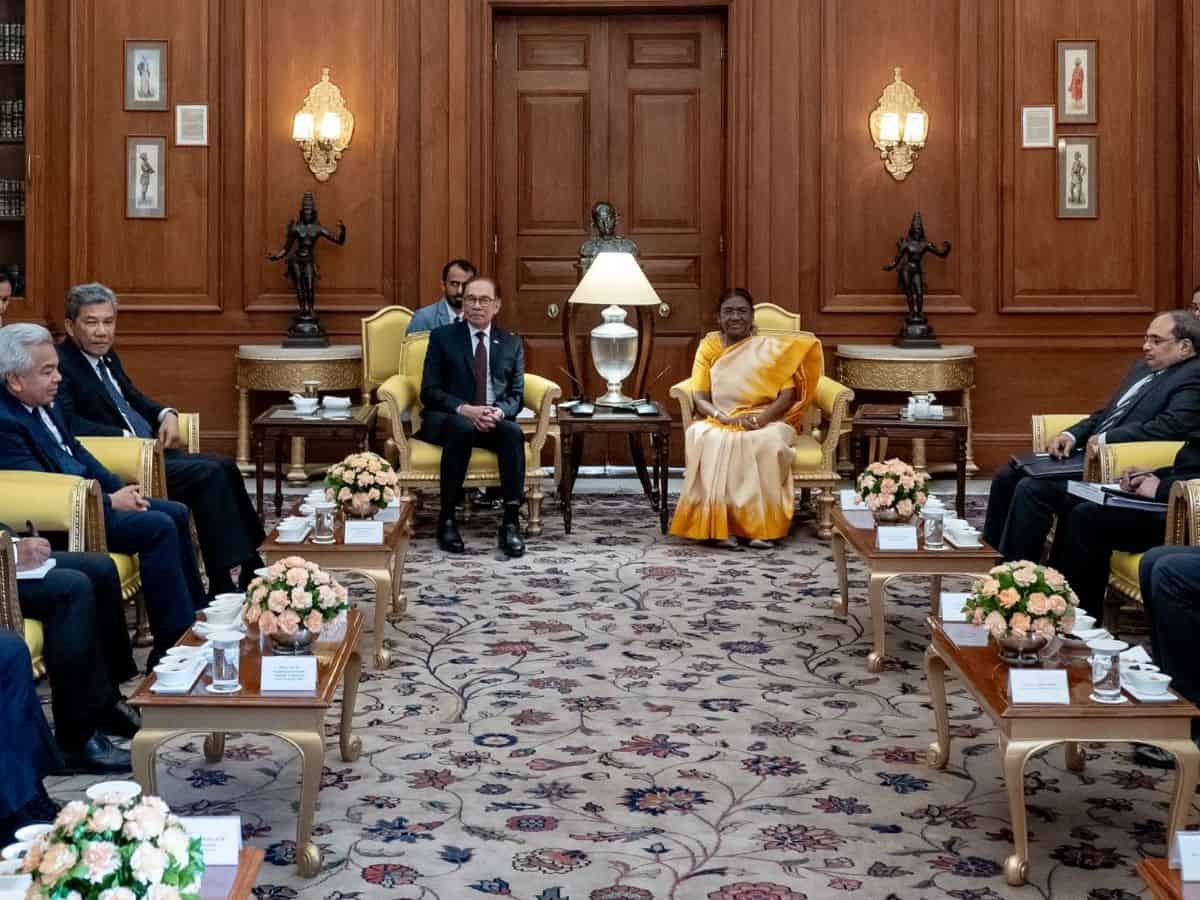
New Delhi: India and Malaysia on Tuesday elevated their ties to a comprehensive strategic partnership after Prime Minister Narendra Modi and his Malaysian counterpart Anwar Ibrahim held extensive talks focusing on resetting the relations that came under some strain during the tenure of Mahathir Mohamad.
A pact for promoting the recruitment of Indian workers in Malaysia and protection of their interests was one of the eight agreements inked between the two sides.
The talks largely focused on boosting cooperation in areas of digitalisation, defence and security, semiconductors, artificial intelligence and people-to-people contact.
Ibrahim began a three-day visit to India on Monday night — his first trip to the country after he became the prime minister in 2022.
“Today, we have decided that our partnership will be elevated to a Comprehensive Strategic Partnership,” Modi said in his media statement.
The prime minister said the agreement on the employment of workers will promote the recruitment of Indians as well as the protection of their interests.
Highlighting the importance of India-Malaysia economic engagement, Modi said investments from Malaysia to India were worth USD 5 billion last year and the two sides had begun trade in their national currencies.
“We believe that there is still a lot of potential in economic cooperation. Bilateral trade and investment should be expanded,” he said.
Asked whether India raised the issue of extradition of controversial Islamic preacher Zakir Naik, Secretary (East) in the Ministry of External Affairs Jaideep Mazumdar did not give a direct reply but said all relevant issues were discussed.
Naik is wanted by Indian authorities for alleged money laundering and inciting extremism through hate speeches. He left India in 2016.
At a media briefing on Modi-Ibrahim talks, Mazumdar said Malaysia supported India’s bid to become a permanent member in a reformed UN Security Council.
Mazumdar said Malaysia also agreed to consider India as a source for procuring various defence platforms and hardware.
The two sides also deliberated on issues relating to food security and in this context New Delhi agreed to supply 200 metric tonnes of non-Basmati rice to Malaysia.
In his media statement, Modi said: “We should increase mutual cooperation in new technological areas, such as semiconductor, Fintech, defence industry, artificial intelligence and quantum.”
“We have emphasised on accelerating the review of the Comprehensive Economic Cooperation Agreement between India and Malaysia,” he said.
The prime minister said work will also be done to connect India’s digital payment system UPI with Malaysia’s PayNet.
In the talks, the two prime ministers condemned terrorism and agreed to call upon states to reject terrorism in all its forms and manifestations.
“We are also unanimous in the fight against terrorism and extremism,” PM Modi said.
Both the leaders underlined that no country should harbour terrorists and agreed to work together to bring perpetrators of terrorism to justice expeditiously, a joint statement said.
In his remarks, Modi also described Malaysia as an “important partner” of India in the ASEAN (Association of Southeast Asian Nations) and Indo-Pacific region.
“India gives priority to ASEAN centrality. We agree that the review of the FTA (free trade agreement) between India and ASEAN should be completed in a timely manner,” he said.
In an apparent reference to the situation in South China Sea that has been witnessing growing Chinese military muscle-flexing, Modi said: “We are committed to freedom of navigation and overflight in accordance with international laws. And, we support the peaceful resolution of all disputes.”
The joint statement said the two leaders reiterated their commitment to respecting freedom of navigation and overflight, and unimpeded lawful commerce, based on the principles of international law, as reflected in the UN Convention on the Law of the Sea (UNCLOS) 1982.
The two sides also deliberated upon new possibilities of cooperation in the defence sector as well. Both sides also decided to establish a digital council for cooperation in digital technology, and to form a start-up alliance.
In his remarks, Ibrahim said all issues, sensitive or likewise, were discussed in reflection of the true meaning of friendship between the two countries.
“India is a great nation with a great history and a great culture and civilisation. It is in many ways multi-cultural and multi-religious,” he said.
“Therefore we have a lot of commonalities which extend beyond trade and investment,” he added.
In the Modi-Ibrahim talks, it was decided to set up an Ayurveda chair in Malaysia’s University Tunku Abdul Rahman. Apart from this, a decision has also been taken to establish a Tiruvalluvar Chair in the University of Malaya.
